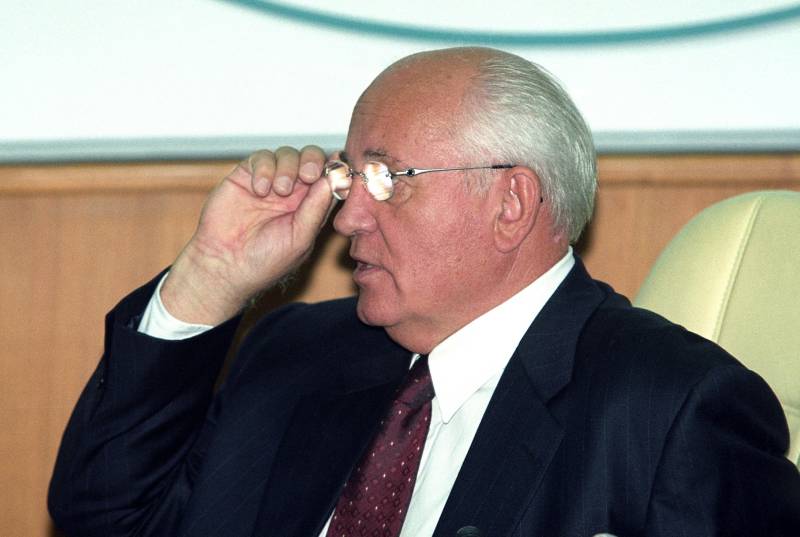На Западе его уважают, в России ненавидят. Парадокс!
В ноябре 2017 года исполнится 100 лет Октябрьской революции, открывшей советскую эпоху, пишет Дженнифер Клиббон (Jennifer Clibbon) на сайте «CBC News». Коммунисты правили 74 года — именно столько существовала «советская империя», указывает журналистка.
В 1980-х годах Михаил Горбачёв решил реформировать Коммунистическую партию Советского Союза «изнутри», ознаменовав таким образом своей фигурой «эпоху политической и экономической перестройки», которая заложила основы как для окончания холодной войны, так и развала СССР.
Только что вышла в свет новая книга-биография «Горбачёв: его жизнь и эпоха» историка Уильяма Таубмана (William Taubman). Журналистка считает, что этот труд даёт «убедительный взгляд на последнего лидера Советского Союза».
Таубман говорит, что Горбачёв «изменил свою страну и изменил мир».
86-летний Горбачёв, выпустивший свои собственные мемуары («Я остаюсь оптимистом»), живёт в Москве. Однако этот выдающийся советский реформатор маргинализируется «в автократической России Владимира Путина».
Книга Таубмана, указывается в материале, напоминает об «идеалистической эпохе» 1980-х годов, когда весьма уверенный в себе и относительно молодой лидер Коммунистической партии СССР решил начать реформы, которые «помогли бы его стране сбросить тяжесть сталинского прошлого» и перейти наконец к будущему.
Таубман свободно говорит по-русски. Он восемь раз беседовал с Горбачёвым, брал интервью в тандеме со своей женой Джейн, преподавателем русского языка в колледже в Массачусетсе, где десятилетия преподавал и сам Таубман.
О Горбачёве историк отзывается так: неформальный, естественно себя ведёт, человек с чувством юмора. Таубман также отметил, что его новую книгу Горбачёв пока не читал, но уже поблагодарил его «от всего сердца» за письмо.
Эта книга, похоже, заполняет пробел: ведь в России очень мало биографий Горбачёва, написанных кем-то, кроме самого Горбачёва, полагает Дженнифер Клиббон. Такое невнимание к Горбачёву объясняется парадоксальным отношением к нему в его собственной стране. Есть много россиян, которые до сих пор восхищаются им. Но много и тех, кто его презирает, — и эти люди едва ли обрадуются объективной биографии.
Горбачёвым куда больше восхищаются на Западе и даже в Восточной Европе и куда меньше в России. Западные общества почитают великие достижения Горбачёва: разрушение тоталитаризма, закладывание основ демократии, прекращение «холодной войны». Однако даже те россияне, которые ценят эти достижения, не могут забыть об экономическом и социальном крахе, развале советского государства и потере советской империи.
Что касается настоящего и недавнего прошлого, то Горбачёв поддержал кандидатуру Путина на пост президента России в 2000 году, однако выступил против его переизбрания в 2012 году. Он раскритиковал авторитарное правление Путина и сравнил путинскую партию «Единую Россию» с Коммунистической партией при Л. Брежневе.
Горбачёв был «исключительным» российским лидером, а также и мировым государственным деятелем, считает журналистка. И всё же представление Горбачёва о мире после холодной войны, основанном, насколько это возможно, на отказе от насилия, было идеалистическим. При Путине же Россия, «увы, вернулась к своей традиционной авторитарной и антизападной традиции».
Какой же парадокс выявила журналистка Дженнифер Клиббон в отношении россиян к М. С. Горбачёву? На самом деле никакого. Его не любят (и это самое малое) за ту экономическую разруху, которую принесла с собой «перестройка», за дефицит товаров по всей стране, за пустые прилавки магазинов. Об этом говорят даже те, кому в своё время нравились «ускорение», «гласность» и «перестройка». Именно поэтому многие россияне проголосовали в своё время за Ельцина: он и его советники обещали народу все блага рынка, начиная с изобилия. Правда, они предпочитали не уточнять, что для жизни в изобилии потребуются деньги. Много денег.
— специально для topwar.ru
- http://www.globallookpress.com/

Информация